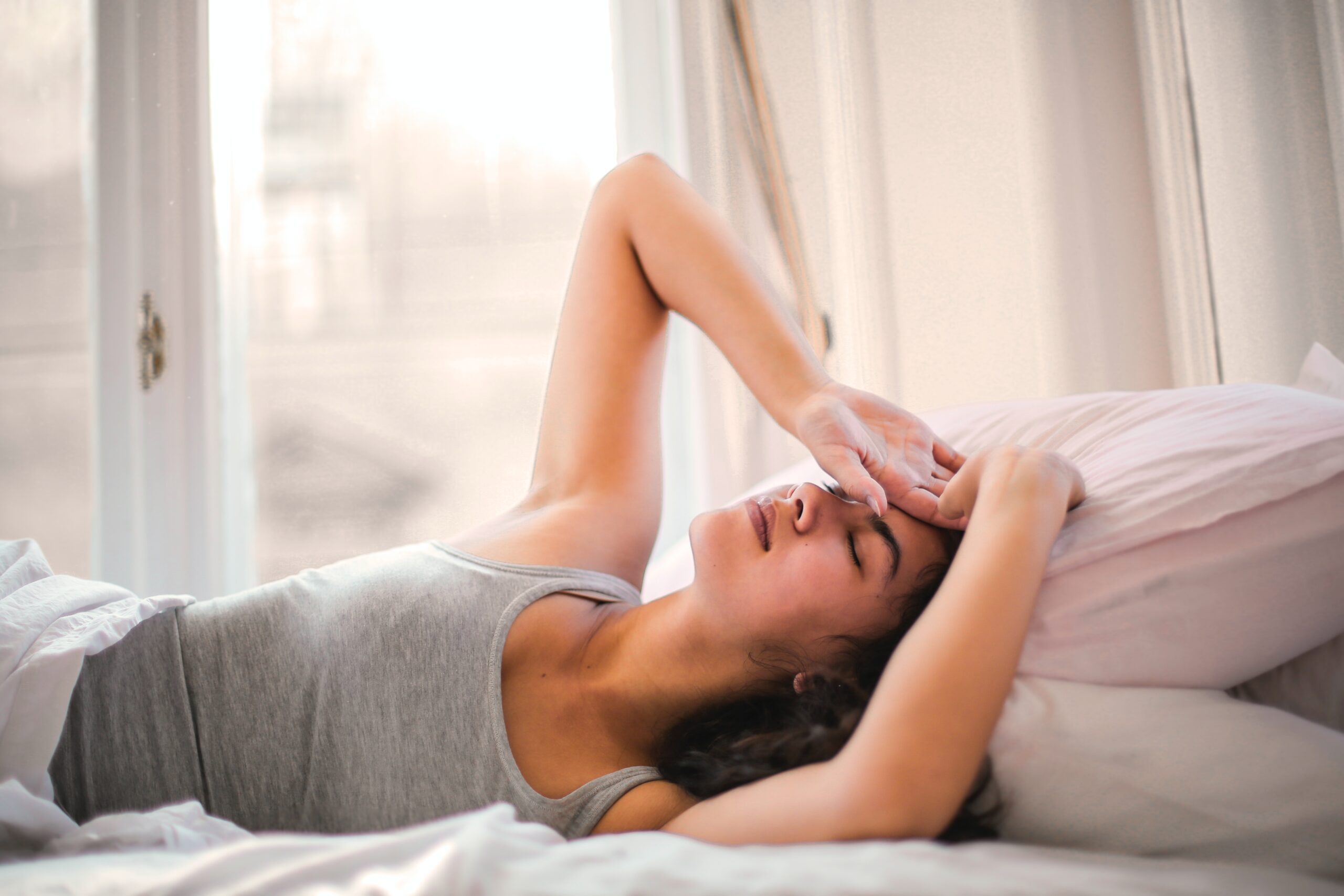Overview
According to a recent report released by Statistics Canada, 1 in 3 Canadians are not getting enough sleep. In fact, the report findings also show that about 40% of men and 48% of women didn’t consistently have a refreshing night’s sleep. Getting fewer than the recommended number of hours recommended for optimal physical and mental health (seven to nine) can have serious negative consequences for health.
Poor sleep quality and sleep disorders such as insomnia are some of the most common, yet most often overlooked and readily treatable health conditions today. In fact, lack of sleep in terms of both duration and quality, is associated with a number of health issues including obesity, type 2 diabetes, cardiovascular disease, depression, irritability and overall decreased well-being.
However, there is also some good news: it is possible to change bad sleeping habits and reboot your sleep routine to get the good night’s sleep you need.
Here are some sleep-wrecking habits to avoid to maximize your sleep quality and feel refreshed in the morning.
1. Screen use at bedtime
It has become a normal routine for many of us to scroll through the feeds of our social media accounts, read the news or check our emails in bed before going to sleep. According to sleep researchers, this habit makes it very difficult to fall asleep.
Using devices before bedtime increases brain activity and enhances the brain state of wakefulness, which prevents the onset of sleep.
Moreover, artificial lights sources, such as phone or tablet screens, can interfere with the body’s natural sleep/wake cycle and can make it difficult to fall asleep. The blue light emitted by device screens can decrease the production of melatonin, the hormone naturally produced by the body to make us feel sleepy.
To break the bad habit of using electronic devices at bedtime, it is recommended to turn them off long before you go to sleep.
2. Having a large meal before going to sleep
After a long and tiring day, it can be difficult to resist the temptation of having a big meal and heading off to sleep. However, eating too close to bedtime can wreak havoc on your quality of sleep since it increases the risk of acid reflux and overloads the stomach at night time.
Having to digest a large meal can also make it difficult to fall asleep, and sleep experts typically recommend avoiding foods rich in calories at bedtime.
If you feel hungry and need to eat before going to sleep, try going for a lighter meal, such as a small bowl of cereal or yogurt with fruit and muesli.
3. Drinking caffeinated or alcoholic drinks close to bedtime
When choosing your afternoon beverage, it’s important to keep in mind that your choice can affect your quality of sleep. Scientific research shows that caffeine consumed up to 6 hours before bedtime can significantly interfere with sleep.
Moreover, it’s easy to forget that caffeine is not only found in coffee, but also in other beverages and snacks, such as soft drinks and chocolate.
Drinking an alcoholic drink around night time can seriously interfere with sleep. Although consuming alcohol at bedtime can make it easier to fall asleep, it also reduced the overall quality of sleep. Research findings demonstrate that having only one alcoholic beverage before going to bed changes sleep brainwave patterns, interferes with sleep and even affects the brain cells. This results in daytime sleepiness, fatigue and irritability.
It is strongly recommended to avoid caffeine- and alcohol-containing drinks close to bedtime and choose decaf or herbal tea instead.
4. Using the bedroom as a multipurpose space
According to sleep experts, the bedroom should be a space reserved only for sleep. Using the bedroom for activities such as watching TV, playing video games or working makes it more difficult to associate the space with sleep.
Having clutter and distractions in the bedroom can prevent the transition into sleep and ideally, the room you sleep in should have no reminders of anything stressful. On the other hand, it is a good idea to add calming personal items, such as family photos, and soothing colours and sounds.
It is important to set the right temperature to make sure your sleeping space is not too cold or too warm, and get rid of any light sources, including bright faces of the alarm clock.
5. Hitting the ‘snooze’ button
It may seem as if hitting ‘snooze’ on your alarm clock or phone can help you get those few extra precious minutes of sleep, it actually leads to increased daytime drowsiness.
Research studies show that many people mistakenly think that the extra few minutes of sleep we can procure by hitting the ‘snooze’ button will give us more energy during the day.
However, in reality, the short periods between hitting ‘snooze’ are not long enough to fall back asleep and make it more difficult to get out of bed.
Trying to win those extra minutes of sleep results in fragmented sleep and feeling tired during the day. Therefore, it is best to set your alarm for the exact time you need to get up and when waking up, to resist the temptation to stay in bed for longer.


















